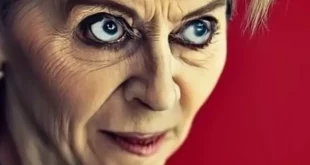Andrew Anglin
Daily Stormer
December 28, 2014

Though I plan to do a year-end wrap-up myself in the next couple days (probably after the first of the year with the way things are going), a Canadian Jew-site compiled a very good list of this year’s far-right victories, which it rightly states are unprecedented since the death of Adolf Hitler.
- In France, the Front National party won 12 mayoralties as well as its first victory in a nationwide election, garnering almost 25 per cent of the ballots in the European Parliament vote and taking 24 of France’s 74 seats in the legislature. The party leader Marine Le Pen is now the front-runner in the 2017 French presidential election.
- In India, Narendra Modi, a member of the Hindu ultranationalist organization Rashtriya Swayamsevak Sangh since his youth, was elected prime minister. The RSS, militantly anti-Muslim, took early inspiration from the European national-socialists. Although, as a mainstream leader, Modi is having some trouble with RSS fanatics, he at least sympathizes with their cause, and so do some of his ministers.
- In Sweden, the far right Sweden Democrats hold the balance of power in parliament, and this month forced the country’s first early election in 50 years. Asked about a local politician who was forced to leave the party for wearing a swastika armband, the party leader Jimmie Akesson replied that the other Swedish political parties have Nazi-sympathizing members, too — they’re just more visible in a smaller group.
- In Hungary, the far right party Jobbik did better than ever this year, winning 20 per cent of vote in the parliamentary election and consolidating its position as Hungary’s third biggest party. Jobbik aggressively defends itself against accusations of Nazism, but some of the brave troopers in Heller’s picture selection are Jobbik supporters, and one look at them is enough to see what they are.
- In Japan, 15 of the 19 members of Shinzo Abe’s cabinet, formed just a few months ago, are members of Nippon Kaigi, a nationalist group that supports revising Japan’s pacifist constitution, considers the 1946-1948 Tokyo War Crimes Tribunals illegitimate and is generally unapologetic about Japan’s role in World War II. Abe, just re-elected as prime minister, is going to push for constitutional change to allow Japan to have a standing army for the first time since the days when it was allied to Nazi Germany.
- In Germany, the biggest anti-immigrant protests since the country’s unification are taking place in Dresden. This week, 17,500 people turned out against the “Islamization of the West,” a record for the rapidly growing movement. The rallies’ organizers, branded “pinstripe Nazis” by their opponents, deny any ties to the Nazi ideology. Here’s how their leader, Lutz Bachmann, frames the distinction: “We love our nation, but we are against socialism, so we are not Nazis.”
- In Austria, the far right Freedom Party had its best showing in the European Parliament election since 1999, having consolidated after a leadership struggle that nearly killed the party in 2002.
- In the U.K., the xenophobic, anti-EU U.K. Independence Party won the European Parliament election and saw its first two members elected to the House of Commons. “We’ve shown here that if you vote UKIP you get UKIP and I think the consequences are very difficult to predict,” the party leader Nigel Farage said after the second successful by-election. It’s hard to argue with that.
- In post-revolution Ukraine, Azov and other volunteer battalions fighting against pro-Russian insurgents openly display the Wolfsangel and other Nazi symbols. These fighters enjoy the support of President Petro Poroshenko, who recently granted Ukrainian citizenship to a Belarussian neo-Nazi who had taken part in the conflict. Though far right parties have not done well in Ukrainian elections this year, they have sent some representatives to parliament and have increased their informal influence in many communities.
- In Russia, where the Nazi symbolism of the Ukrainian extreme right is much decried by officials and propaganda outlets, President Vladimir Putin considers no major speech complete without a quote from the writings by Ivan Ilyin, a Russian nationalist philosopher who condoned fascism and praised Hitler in the 1930s. Russia backs far right movements in Europe and has even openly funded France’s Front National. In fact, Russia’s new governing ideology is one of extreme nationalism, though it is directed outward, not inward — against perceived external enemies, primarily the U.S., rather than immigrants.
A very good year indeed.
And 2015 is going to be better.
 Daily Stormer The Most Censored Publication in History
Daily Stormer The Most Censored Publication in History


